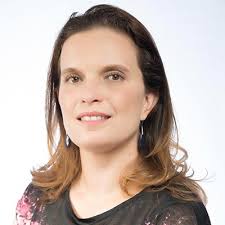
Brazilian signatories at the Investor Statement launch
New Investor Statement: a sign of momentum
In a big step towards low carbon growth, major Brazilian investors have signed the first Brazil Green Bonds Statement committing to ‘the development of a robust Brazilian green bonds market that makes a real contribution to addressing climate change.’
An initiative of the Climate Bonds Initiative (CBI), Principles for Responsible Investment (PRI) and SITAWI, the statement identifies a mix of market and policy actions conducive to achieving growth in green finance and aims to foster discussion and future issuance of green bonds in the local market.
Who’s signed up?
Banco BTG Pactual, BB DTVM, Itaú Asset Management, Santander Asset Management, SulAmérica Investimentos and UBS Brasil signed the statement during a launch event in São Paulo, timed to coincide with the release of the ‘Guidelines for Issuing Green Bonds in Brazil’.
Other local investors have indicated an interest in signing. This is the beginning of a long engagement with Brazil’s investment community. We’ll keep you posted.
New Guidelines for Issuing Green Bonds in Brazil
The Guidelines “Guia Para Emissão de Títulos Verdes no Brasil,” have been developed by a Working Group on Green Bonds convened by FEBRABAN and CEBDS – with technical support from SITAWI and the Center for Sustainability Studies of Getúlio Vargas Foundation (FGVces).
We were happy to see some of our data and reports referenced in the new guidelines, which are aimed at stakeholders of the Brazilian Green Bonds market, including potential issuers, underwriters, investors, and reviewers.

Guidelines for Issuing Green Bonds in Brazil event
Who’s saying what

Justine Leigh-Bell, Climate Bonds Director of Market Development
 "PRI supports any initiative that promotes a more sustainable capital market with a long-term focus. It’s vital that we encourage the development of responsible investment options in local markets to increase the participation of institutional investors."
"PRI supports any initiative that promotes a more sustainable capital market with a long-term focus. It’s vital that we encourage the development of responsible investment options in local markets to increase the participation of institutional investors."
Tatiana Assali, Head of PRI South America
 "This Statement shows that there is local appetite for Brazilian green bonds. However, it is important we see bond issuance with a risk/return profile that is consistent to the fiduciary duty of these investors, ensuring the credibility of green financed assets and the transparency in the use of proceeds."
"This Statement shows that there is local appetite for Brazilian green bonds. However, it is important we see bond issuance with a risk/return profile that is consistent to the fiduciary duty of these investors, ensuring the credibility of green financed assets and the transparency in the use of proceeds."
Gustavo Pimentel, Director at SITAWI
Sustentável 2016 Congress - Discussing and encouraging sustainability best practices in the business and financial sectors

Sergio Besserman, Linda Murasawa, Justine Leigh-Bell & Roger Koeppl on the 1st Panel
Coordinated by CEBDS, the International Congress on Sustainable Development (Brazil’s main sustainability event), saw a record attendance of more than 400 participants filling the Museu do Amanhã auditorium in Rio, to debate sustainability, investment and the role of the private sector.
The goal of the congress was to discuss the next steps to support a sustainable financial transformation in Brazil, how prepared the country is for future climate crisis scenarios and what is the role of Brazil, its companies and society in this challenging scenario.
We think it’s best to simply replicate the agenda of the four big sessions:
Sustainability in a crisis scenario
A debate that will address the important role of sustainability as an alternative to the impacts of the global climate crisis.
The new relation between Business and Natural Resources
A debate about how to valuate and report sustainability management, integrating its financial gains to natural capital.
The future of Cities and Sustainable Mobility
A debate about how is going to be the mobility and the cities in the future, and its relations in terms of social and environmental impacts.
Where we came from, where we are, and where we go
A debate to discuss the relevance of sustainability, and in partnership with the Brazilian Foundation for Sustainable Development (FBDS), pay tribute to the great names who started talking about sustainability in Brazil, over 20 years ago and their vision that opened the way.
Climate Bonds’ director Justine Leigh-Bell, was a speaker on the first panel, ‘Sustainability in a Crisis Scenario’ moderated by Linda Murasawa, Executive Superintendent of Santander bank. She highlighted the role of green bonds as a solution to funding climate action projects and the vast green investment opportunities for Brazil.
You can watch the full event on YouTube here.
Linda starts the discussion with Justine at around 1:00:02.
The Last Word
The Investor Statement, the new guidelines and the continuing discourse around sustainable investment are encouraging.
Blog readers with good memories will recall long before Paris, Copenhagen and Durban there was ‘Eco92’, the Rio Earth Summit. It’s been a long road since then. Brazil has made its own progress on forests, sustainable agriculture and clean energy.
These three big events in the last fortnight give us confidence that the domestic sustainable development and green finance agenda is gathering momentum.
Até mais,
Climate Bonds Communications
Disclaimer: The information contained in this communication does not constitute investment advice and the Climate Bonds Initiative is not an investment adviser. Links to external websites are for information purposes only. The Climate Bonds Initiative accepts no responsibility for content on external websites.
The Climate Bonds Initiative is not advising on the merits or otherwise of any investment. A decision to invest in anything is solely yours. The Climate Bonds Initiative accepts no liability of any kind for investments any individual or organisation makes, nor for investments made by third parties on behalf of an individual or organisation.
